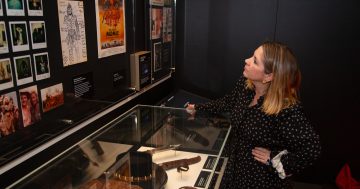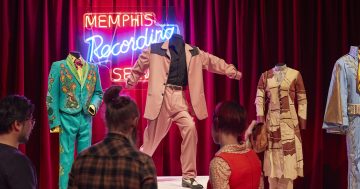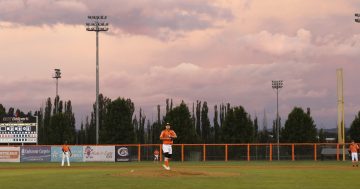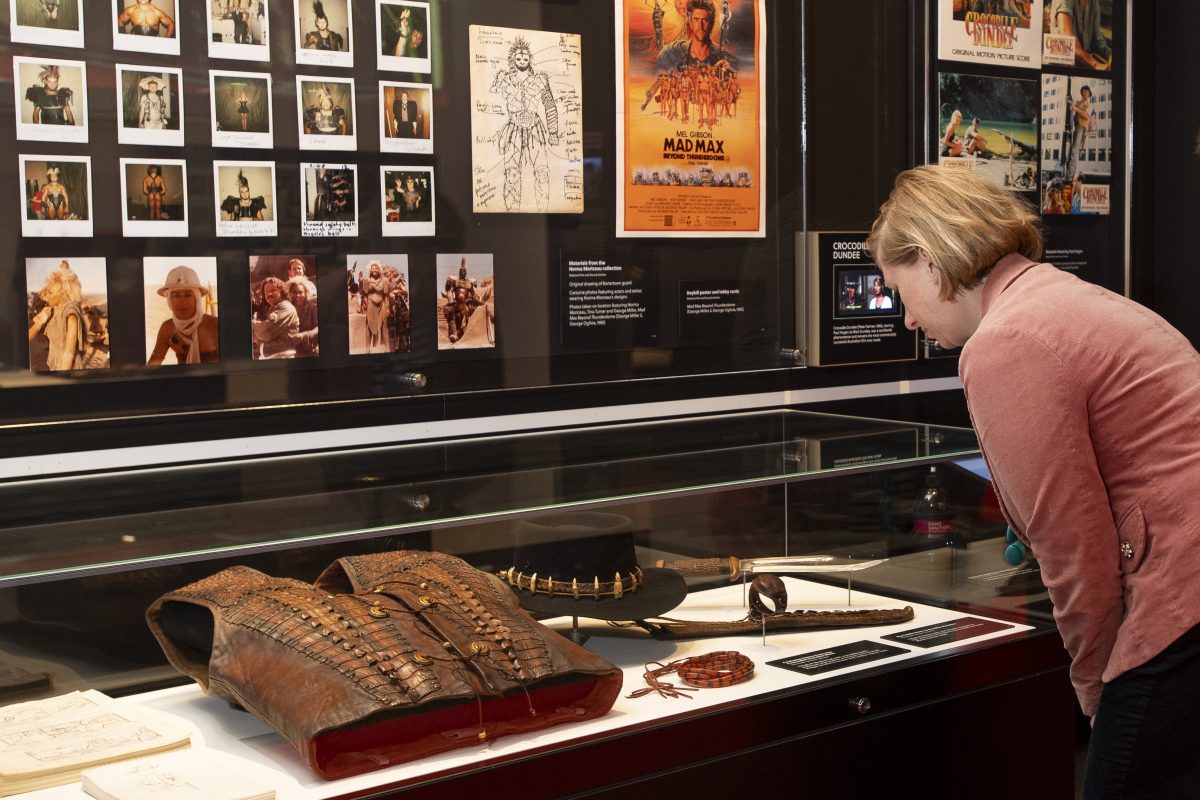
Exhibitions Registrar Pippa Thorogood McLennan, who will coordinate workshops over the school holidays, checks out the Crocodile Dundee display at the NFSA. Photo: NFSA.
So, how does one of the most iconic pieces of Australian film folklore, the knife used by Crocodile Dundee in that scene from our most commercially successful movie, land in a showcase at the National Film and Sound Archive in Canberra?
Yes, our Hoges made it clear that size does matter when it came to that knife, but according to the NFSA, there is so much more to this and the thousands of other stories such items tell, also including the original Croc Dundee vest and hat, currently on loan to the NFSA for its Australians and Hollywood exhibition.
So, how do such gems of Aussie film, to say nothing of an Elvis jumpsuit, some Aussie Oscars (thanks Baz) and even the steering wheel from Mad Max, find themselves on display?
For the manager of learning and literacy at the NFSA, Alyssa Coursey, it’s all about communication – and contacts.
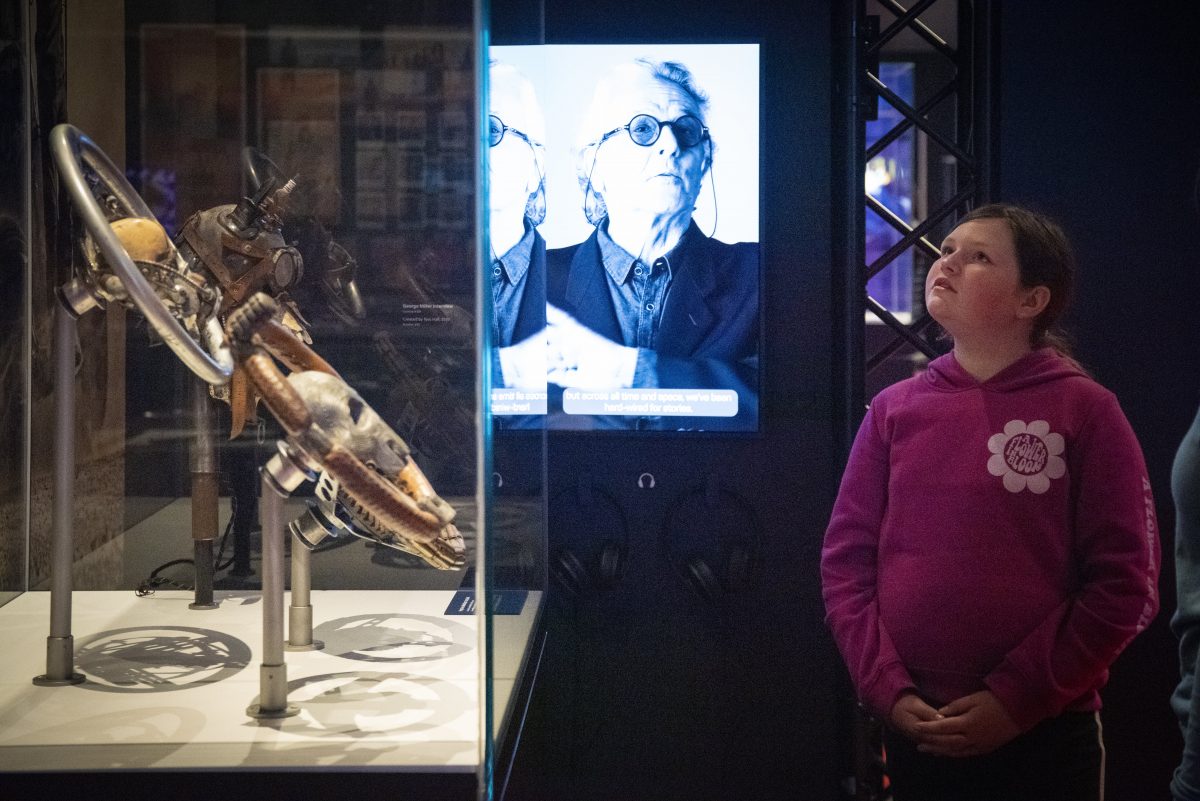
Where else would you see the Mad Max steering wheel and one of Elvis’s jumpsuits? The NFSA is hosting a pilot school holiday program in April, designed to tell the stories behind its stories. Photo: NFSA.
“We find lenders are happy to work with us as the NFSA is a champion of Australian media and the exhibition is all about reflecting the contribution Aussies have made on the international stage in Hollywood,” Ms Coursey said.
“People know and love the films in our collection and exhibitions,” she said, “but what we want to share are the stories behind the scenes.”
In a pilot project over the school holidays, NFSA staff will take young visitors behind the scenes to find out how they do what they do, from borrowing items for exhibitions from famous people on the other side of the world to loans from other cultural institutions across the lake.
“The idea is for them to speak to our curators to learn about why we borrow certain things, how long it takes to get exhibitions open and what’s involved – there are so many details involved,” she said.
“Like how we deal with film, for example, and issues like film shrinkage.”
Preserving film and digitising it to ensure it is still available for viewing and research by future generations is one of the most important aspects of the work done by the NFSA – work that is vital for keeping tabs on our social history today and tomorrow.
With the Australians and Hollywood exhibition, for example, Ms Coursey said, getting such a project from the idea stage to when the curtain opened in Canberra could – and did – take years.
Organising the loans, she explained, is managed by the exhibitions registrar, with all leading museums and galleries having someone in that plum role. Exhibitions registrar for the Australians and Hollywood exhibition was the NFSA’s Pippa Thorogood-McLennan.
“She coordinated with the lender – it might be another organisation, for example AIATSIS [Australian Institute of Aboriginal and Torres Strait Islander Studies], where other artefacts from the exhibition are on loan from, or private collections like that of Paul Hogan.
It is also their job to make sure the objects arrive safely, are displayed correctly, and returned safely as well,” Ms Coursey said.
For the loan from Paul Hogan, for example, she said the registrar managed negotiations for hundreds of details, from how the loan would be transported to Australia, to Customs issues because some of the pieces were in Sydney while others were in the US.
Then there were the issues of how to store such unique objects and ensure they were in good condition to have on display for certain periods of time, temperature and lighting.
“This was all happening during COVID, adding additional challenges,” Ms Coursey said.
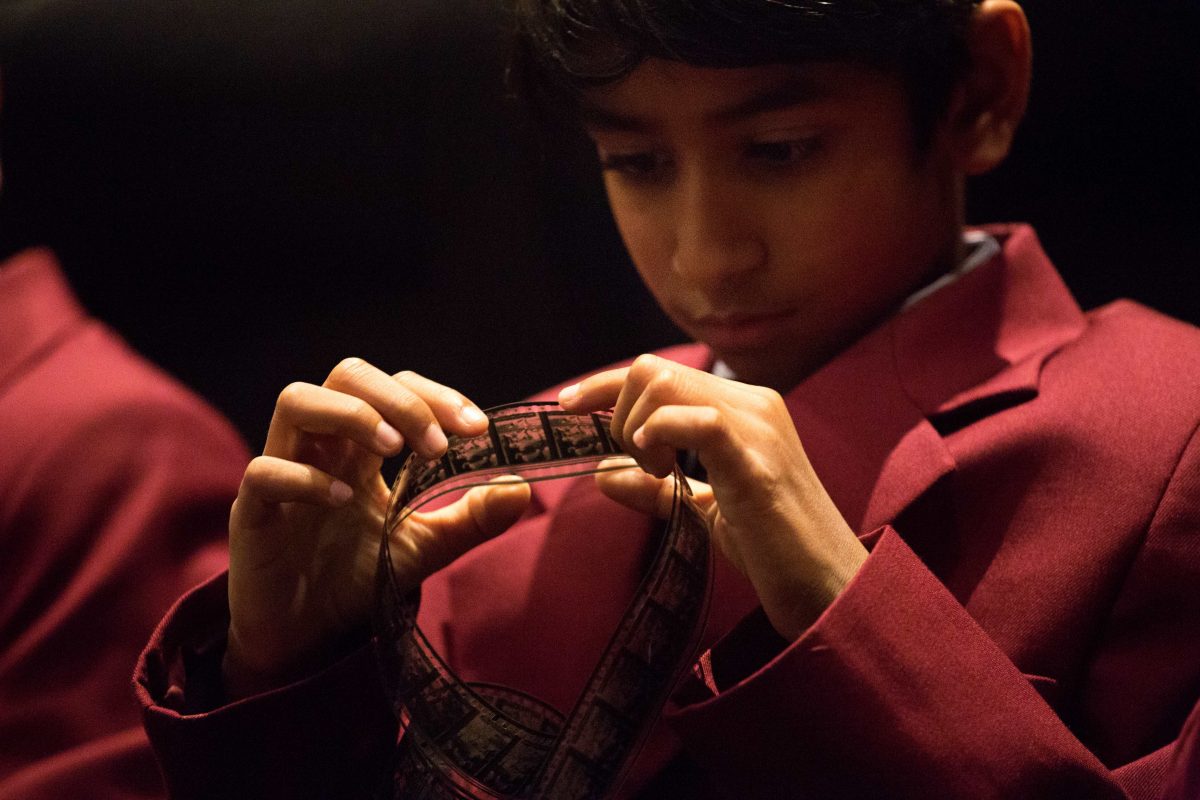
Learning how important – and fragile – film is will help the NFSA ensure priceless pieces of our early film industry remain for future audiences. Photo: NFSA.
Bookings are now open for the NFSA’s new one-day workshops taking youngsters behind the scenes, including working with historic audiovisual equipment, learning about the history of film and sound in Australia, and putting their own spin on a Zoetrope animation – as well as the opportunity to play vintage video games.
The workshops will explore the NFSA’s collection of more than four million items, provide insights from expert curators and conservators, and offer the chance for kids to experience the inner workings of the NFSA for a day – and see the Australians and Hollywood exhibition in a new light.
Workshops are designed for children aged 10 to 13 and are limited to 10 participants per workshop. They will run throughout April from 10 am to 4 pm.
Email learning@nfsa.gov.au for more information.
